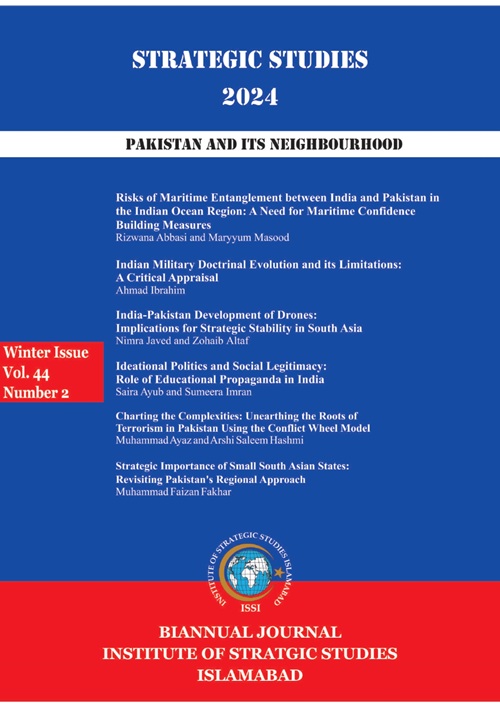Abstract
The term ‘Indo-Pacific’ was first coined by the Japanese Prime Minister, Shinzo Abe, in his speech delivered to the Indian parliament in 2007 which was later adopted by the US as a strategic vision in the last phase of Obama’s tenure. In the past few years, Indo-Pacific has become part of the US strategic policy and it is characterised as a ‘priority theatre.’ The Trump administration repeatedly described it as a single, geostrategic region in which the rising powers will play and compete to gain supremacy in the geostrategic and the geo-maritime arena. The rise of the Indo-Pacific Strategy (IPS) has come in time of an increasingly complex geo-economics and geostrategic security environment. More so, it showcases the US’ reliance on regional and extra-regional countries in the form of allies, the Quad countries, as well as regional countries such as Sri Lanka, Maldives, Bangladesh, and Nepal to tackle shared challenges in the area. The following paper will explicate the aims and objectives of the US’ IPS and its central policy overtures towards South Asia. It will also study the implications (strategic and political) of this policy and its stern posturing in the region, especially towards Pakistan.













